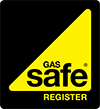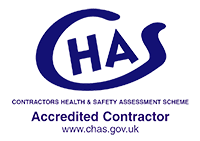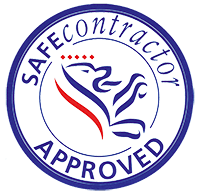Some people are really handy and like being able to do jobs around the house, but many are not. In fact, it would seem that DIY skills are rapidly declining, particularly among younger people. While there are always tradespeople that you can rely on to do jobs for you, there is some basic plumbing knowledge that everyone should really have. Knowing these simple things could help you save a bit of money but could also really help you out in an emergency when you need to respond quickly.
We have therefore put together a few simple plumbing and heating tips that everyone ought to really know and that don’t require any specialist skills. These really are worth taking on board.
In the event of a leak, the first thing you need to do is shut the water off using the stop tap. If it’s a slow leak you can probably afford to take 20 minutes to look around the house to find it but if it’s a flood, you really can’t. That’s why it’s so important to know where it is before you have an issue. If you don’t know where yours is, go find it now. In many homes, it’s often underneath the sink or at the point where water comes into the house. When you find it, make sure it is accessible (in an emergency you won’t want to have to empty the cupboard or move furniture) and that you can turn it (they can seize up over time). If it is not, you might want to consider having a Sure Stop installed which puts a remote stop tap in a more accessible location and operates with a simple switch. If you move home, one of the first things you should do is find the stop tap and make sure everyone knows where it is.
The condensate pipe is the pipe that runs to the outside of your property to expel moisture from your boiler. Because it’s on the outside of the property it can freeze up in very cold weather and if it does it will make your boiler shut down. Obviously this is the time when you need your heating and hot water the most, however it’s actually quite a simple issue to resolve. If your boiler does shut down in freezing weather this is the first thing you can check. If the pipe is frozen, use warm water, a hot water bottle or heat pads to slowly thaw it out (don’t poor boiling water on it). You should then be able to restart the boiler. Many people will call a gas engineer out for this, thinking their boiler is broken, when it’s actually something you can easily resolve yourself. See further details about this here.
If water is taking longer than it should to drain from sinks, baths or showers then don’t ignore it and hope that it will resolve itself. You may be able to resolve it, or at least rule things out, before you have to call a plumber in. The most common issue is that there is a blockage somewhere. It may just be waste, such as foodstuffs in kitchen sinks and hair/soap etc in showers or baths, in which case you can try to unblock it using something caustic such as a bicarbonate of soda and vinegar solution or a drain unblocking product. If accessible you could try unscrewing the pipes from under the sink and giving them a good clean. If this doesn’t resolve the problem then you may have a blockage further down the pipe, in which case you will need to get a plumber in to do some investigation.
This one follows the previous item as being careful what you put down the sink or toilet will help you avoid blockages happening in the first place. Food waste should go in the bin, especially fats that can solidify. Wet wipes are the biggest culprits for blocking toilets (yes, even those that say they are flushable) as well as women’s sanitary products. Some even put nappies down there. Only standard human waste and toilet tissue (which is designed to disintegrate) should go down the toilet.
If you have any kind of plumbing or heating emergency, acting quickly can make all the difference whether that’s to minimise the cost or even to save your life. Just assuming you would know what to do is not enough, you need to understand your options in advance so that when the time comes, you can react in a timely fashion. We would advise that everyone in your home knows how to do the following:
In the event of a leak or flood: turn off the water at the stop tap (see item 1). When you have done that call an emergency plumber
If the carbon monoxide alarm goes off or you can smell gas: call the free 24-hour National Gas Emergency Helpline 0800 111 999. They will advise you want to do next.
Boiler emergency: if your boiler is displaying an error code which could indicate that it is dangerous (refer to your manufacturer’s instructions), is making a funny noise or appears to be overheating then you can shut it off using the isolator switch. This is a switch specific to the boiler which will turn the power off (know where this switch is in advance and if it could be confused with other switches then label it). Once you have done that, call an emergency gas engineer out.
Part of your plan should be to know who you would call out in an emergency. You don’t want to be having to look up numbers in a stressful and time sensitive situation. Have these emergency numbers stored in your phone or noted somewhere everyone can find. For your reference, we are a 24 hour company and our number is 0333 577 0151.
With any domestic job we all make a call on whether it’s something we can tackle ourselves or something that needs a skilled professional. Doing jobs yourself, whether it’s repairing a leak or fitting a tap, can be cheaper but should only be attempted if you are confident of your skills as you could potentially cause more damage than you started with. If it comes to gas appliances, unless it’s something very simple like the condensate pipe, then it’s essential you have a Gas Safe registered engineer deal with that. Not only because of safety but you may invalidate any warranty if you attempt to alter anything yourself.
If you do need the assistance of a qualified plumbing and heating engineer then we’d be delighted to help. You can call us on 0333 577 0151 or complete the form here.
Complete the form below and one of the Plumbcare.com team will get back to you as soon as possible.






Work carried out in a professional and friendly manner, efficiently and neatly done.